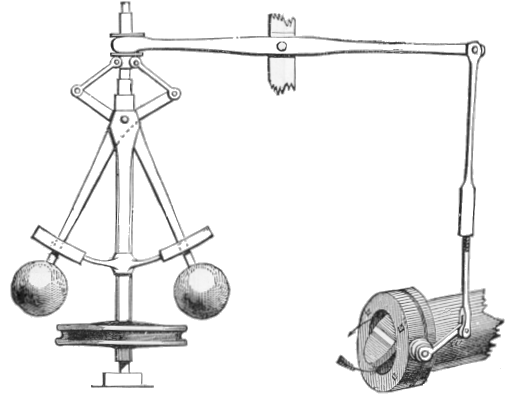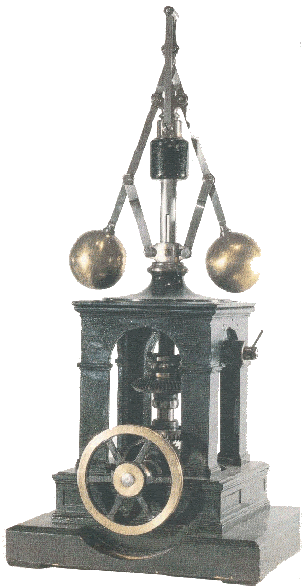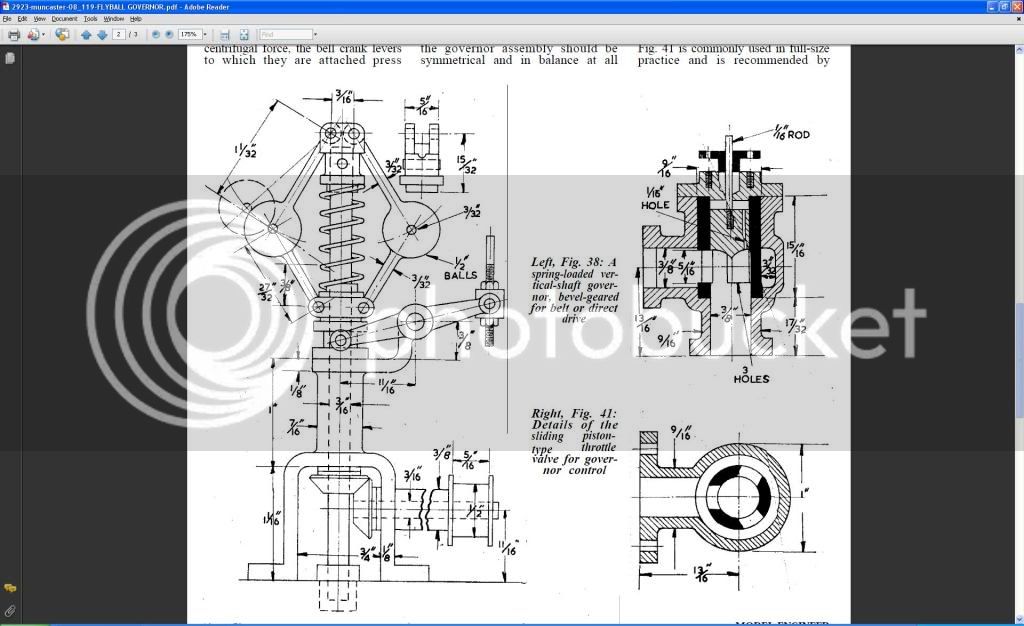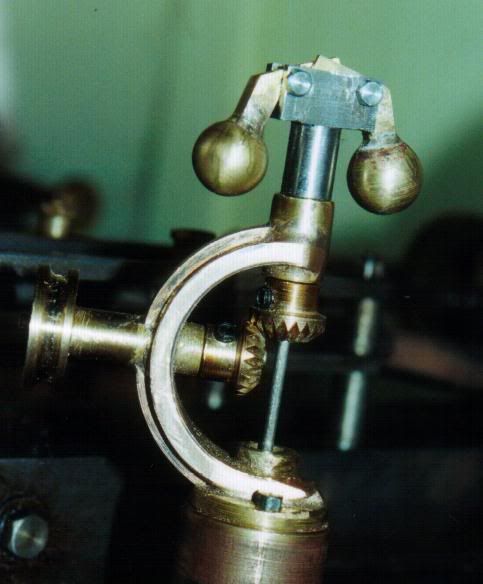Does anyone know of a site with free plans for a flyball governor? Somebody over on the Home Shop Machinist website is looking for a set of FREE plans. I don't have any plans, and although I could design a set, its more cost effective to modify a set of existing plans.---This subject brings up a funny story from my youth.--Read on if interested---
I grew up in the kinder, gentler, far more poverty stricken world of the 1950's. I have a firm belief that it wasn't necessity that was the mother of invention---poverty was. The lack of money created a world of tinkerers and inventors, simply because there was no money to buy the proper tool or machine. An older friend of mine, named Leonard had built a portable buzz saw for cutting firewood. This was basically a 48" diameter circular saw mounted on the chassis of a model A Ford, circa 1930 or 1931. The lengths of wood were lifted onto a tilting carriage, and the carriage was tilted into the saw to cut up lengths of firewood. The saw was driven by a flat belt and pulley arrangement that came from the rear of the old Fords transmission. Now, Leonard had a problem----The old 4 cylinder Ford engine had babbit bearings, so it did not take kindly to prolonged high speed revving. However, if someone didn't open the throttle and give it some gas when the log engaged the saw, the engine would stall. Leonard was a veteran tinkerer, and somehow come into the posession of a set of flyball governors off an old steam train. He mounted them with a belt drive from the Ford engine, and hooked them up to the carburetor with a system of levers and pulleys. The theory was quite simple---under no load conditions the old Ford would set there idling, but as soon as the log engaged the buzz saw, the rpm's would drop off, and the flyball governors would open the throttle automatically. this was a perfectly good working theory!!! The problem was that Leonard somehow got one of his lever arrangements bass ackwards. When the last bolt was tightened, and the last brace welded in place, Leonard went to test his creation. He started the Ford---that part worked perfect. As soon as it started however, the flyballs began to fly outward from centrifugal force, and the farther out they flew, the more the lever mechanism opened the throttle. The engine went from zero to a zillion rpm's in the blink of an eye. Leonard leaped from the drivers seat and raced around the car to pull off the coil wire and shut down the engine---and at the same time the flyball governor self destructed (it too was by then doing a zillion rpm's). One of the steel balls flew and hit poor Leonard directly in the kneecap and broke it into a dozen peices--then the old Ford engine self destucted in a scream of tortured babbit bearings and shattered castings!! Leonard eventually recovered, though he walked with a limp ever afterwards. We all survived the 1950's, but it certainly was a time that gave rise to a lot of interesting stories.---Brian
I grew up in the kinder, gentler, far more poverty stricken world of the 1950's. I have a firm belief that it wasn't necessity that was the mother of invention---poverty was. The lack of money created a world of tinkerers and inventors, simply because there was no money to buy the proper tool or machine. An older friend of mine, named Leonard had built a portable buzz saw for cutting firewood. This was basically a 48" diameter circular saw mounted on the chassis of a model A Ford, circa 1930 or 1931. The lengths of wood were lifted onto a tilting carriage, and the carriage was tilted into the saw to cut up lengths of firewood. The saw was driven by a flat belt and pulley arrangement that came from the rear of the old Fords transmission. Now, Leonard had a problem----The old 4 cylinder Ford engine had babbit bearings, so it did not take kindly to prolonged high speed revving. However, if someone didn't open the throttle and give it some gas when the log engaged the saw, the engine would stall. Leonard was a veteran tinkerer, and somehow come into the posession of a set of flyball governors off an old steam train. He mounted them with a belt drive from the Ford engine, and hooked them up to the carburetor with a system of levers and pulleys. The theory was quite simple---under no load conditions the old Ford would set there idling, but as soon as the log engaged the buzz saw, the rpm's would drop off, and the flyball governors would open the throttle automatically. this was a perfectly good working theory!!! The problem was that Leonard somehow got one of his lever arrangements bass ackwards. When the last bolt was tightened, and the last brace welded in place, Leonard went to test his creation. He started the Ford---that part worked perfect. As soon as it started however, the flyballs began to fly outward from centrifugal force, and the farther out they flew, the more the lever mechanism opened the throttle. The engine went from zero to a zillion rpm's in the blink of an eye. Leonard leaped from the drivers seat and raced around the car to pull off the coil wire and shut down the engine---and at the same time the flyball governor self destructed (it too was by then doing a zillion rpm's). One of the steel balls flew and hit poor Leonard directly in the kneecap and broke it into a dozen peices--then the old Ford engine self destucted in a scream of tortured babbit bearings and shattered castings!! Leonard eventually recovered, though he walked with a limp ever afterwards. We all survived the 1950's, but it certainly was a time that gave rise to a lot of interesting stories.---Brian




































































